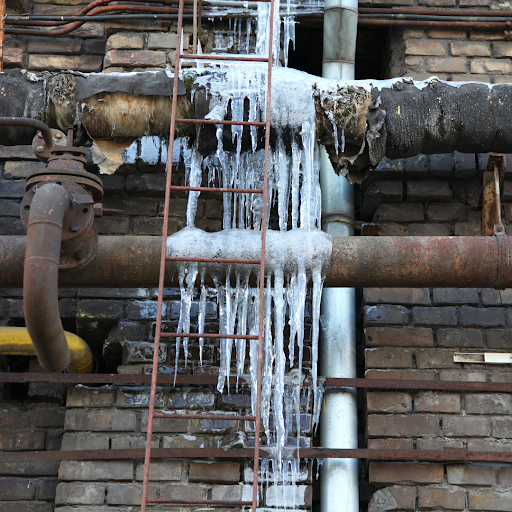Avoiding Frozen Plumbing in Cold Weather: Key Advice
Avoiding Frozen Plumbing in Cold Weather: Key Advice
Blog Article
We have uncovered this great article relating to Helpful Tips to Prevent Frozen Pipes this Winter directly below on the internet and reckoned it made sense to relate it with you on my blog.

Cold weather can damage your plumbing, particularly by freezing pipelines. Here's exactly how to avoid it from happening and what to do if it does.
Introduction
As temperatures drop, the risk of frozen pipelines boosts, possibly bring about pricey fixings and water damage. Comprehending just how to stop frozen pipelines is important for house owners in chilly environments.
Avoidance Tips
Insulating vulnerable pipelines
Cover pipelines in insulation sleeves or utilize heat tape to safeguard them from freezing temperatures. Focus on pipes in unheated or external locations of the home.
Home heating techniques
Maintain interior rooms appropriately heated, particularly locations with pipes. Open closet doors to permit cozy air to circulate around pipelines under sinks.
How to identify frozen pipes
Try to find lowered water flow from faucets, unusual odors or sounds from pipes, and visible frost on subjected pipes.
Long-Term Solutions
Structural modifications
Take into consideration rerouting pipelines far from outside wall surfaces or unheated areas. Add extra insulation to attic rooms, basements, and crawl spaces.
Updating insulation
Buy high-grade insulation for pipelines, attic rooms, and walls. Appropriate insulation aids preserve consistent temperature levels and decreases the danger of frozen pipelines.
Securing Exterior Plumbing
Garden pipes and outdoor taps
Detach and drain pipes yard pipes prior to winter months. Mount frost-proof spigots or cover outdoor taps with protected caps.
Recognizing Frozen Pipelines
What triggers pipes to ice up?
Pipelines ice up when subjected to temperatures listed below 32 ° F (0 ° C) for prolonged periods. As water inside the pipes ices up, it increases, taxing the pipe walls and possibly triggering them to burst.
Threats and damages
Frozen pipelines can lead to supply of water disturbances, residential property damages, and costly fixings. Burst pipelines can flood homes and create extensive architectural damage.
Signs of Frozen Pipeline
Identifying frozen pipes early can avoid them from rupturing.
What to Do If Your Pipes Freeze
Immediate activities to take
If you presume frozen pipes, maintain taps available to soothe pressure as the ice thaws. Utilize a hairdryer or towels taken in warm water to thaw pipes gradually.
Final thought
Preventing icy pipelines calls for proactive measures and quick reactions. By understanding the reasons, indicators, and preventive measures, home owners can protect their pipes during winter.
Helpful Tips to Prevent Frozen Pipes this Winter
UNDERSTANDING THE BASICS: WHY PIPES FREEZE AND WHY IT’S A PROBLEM
Water freezing inside pipes is common during the winter months, but understanding why pipes freeze, and the potential problems it can cause is crucial in preventing such incidents. This section will delve into the basics of why pipes freeze and the associated problems that may arise.
THE SCIENCE BEHIND FROZEN PIPES
When water reaches freezing temperatures, it undergoes a physical transformation and solidifies into ice. This expansion of water as it freezes is the primary reason pipes can burst. As the water inside the pipe freezes, it expands, creating immense pressure on the walls. If the pressure becomes too great, the pipe can crack or rupture, leading to leaks and water damage.
FACTORS THAT CONTRIBUTE TO PIPE FREEZING
Low Temperatures: Extremely cold weather, especially below freezing, increases the risk of pipes freezing. Uninsulated or Poorly Insulated Pipes: Pipes located in unheated areas, such as basements, crawl spaces, or attics, are more prone to freezing. Insufficient insulation or lack of insulation altogether exacerbates the problem. Exterior Wall Exposure: Pipes running along exterior walls are susceptible to freezing as they encounter colder temperatures outside. Lack of Heating or Temperature Regulation: Inadequate heating or inconsistent temperature control in your home can contribute to frozen pipes. PROBLEMS CAUSED BY FROZEN PIPES
- Pipe Bursting: As mentioned earlier, the expansion of water as it freezes can cause pipes to burst, resulting in significant water damage.
- Water Damage: When pipes burst, it can lead to flooding and water damage to your property, including walls, ceilings, flooring, and personal belongings.
- Structural Damage: Prolonged exposure to water from burst pipes can compromise the structural integrity of your home, leading to costly repairs.
- Mold and Mildew Growth: Excess moisture from water damage can create a favorable environment for mold and mildew growth, posing health risks to occupants.
- Disrupted Water Supply: Frozen pipes can also result in a complete or partial loss of water supply until the issue is resolved.
WHY CERTAIN PIPES ARE MORE PRONE TO FREEZING
- Location: Pipes located in unheated or poorly insulated areas, such as basements, crawl spaces, attics, or exterior walls, are at higher risk of freezing.
- Exterior Pipes: Outdoor pipes, such as those used for irrigation or exposed plumbing, are particularly vulnerable to freezing as they are directly exposed to the elements.
- Supply Lines: Pipes that carry water from the main water supply into your home, including the main water line, are critical to protect as freezing in these lines can affect your entire plumbing system.
- Underground Pipes: Pipes buried underground, such as those connected to sprinkler systems or outdoor faucets, can be susceptible to freezing if not properly insulated.
https://busybusy.com/blog/helpful-tips-to-prevent-frozen-pipes-this-winter/

We were shown that editorial on 6 Ways to Prevent Frozen Pipes through an associate on our other web blog. Remember to set aside a second to share this page if you liked it. Thank you for your time. Return soon.
Call Today Report this page